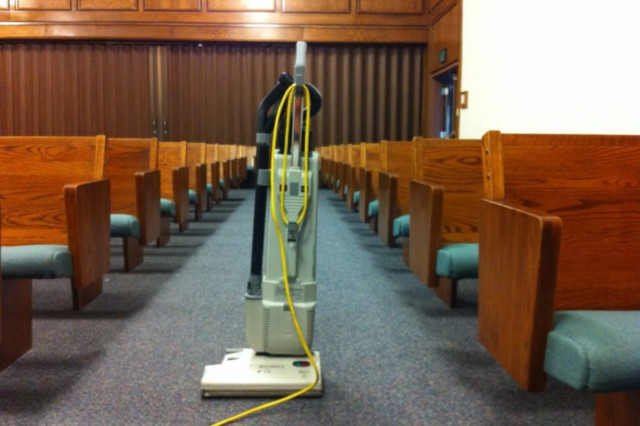
The weight of a word
And it came to pass that Moroni caused that the work of death should cease again among the people. And he took the weapons of war from the Lamanites; and after they had entered into a covenant with him of peace they were suffered to depart into the wilderness.
Let’s play pretend and put ourselves in the Nephites’ shoes and “liken” it unto us. Suppose that an army of our nation’s enemies invaded us. ISIS has entered US soil and started butchering our citizens. Even though we were greatly outnumbered (43:21), our armies relied on the strength of the Lord and somehow prevailed. Here is our chance to wipe out an enormous army bent on our annihilation. At the peak of our victory, when the enemy is down, our captain stops the fighting to offer them a chance to basically promise that they won’t fight again and they can get away for free.
When I read this, I am struck by the fact that promises are a really big deal to the Nephites. Captain Moroni is willing to let an entire army of bloodthirsty enemies who attacked them leave on nothing but their word. And it looks like he had good reason to. Instead of crossing his fingers, falsely obliging, and laughing all the way home to prepare for another war, the enemy leader Zerahemnah balked at Moroni’s proposal. Better to remain and perish than to take a bad oath, he reasoned. But he eventually consented once the battle resumed.
Book of Mormon Central offers some great insight into the potential cultural importance around this particular type of oath that may have caused Zerahemnah to initially reject what seems to us the overly generous terms offered by Moroni here. But this event is not alone in showing how a man’s word was taken very seriously among the Nephites. Here are some more examples that came to my mind when I read this verse:
Zoram gave his word, and it meant something.
When the servant of Laban realized that the man he had been talking with all night had killed his master and feared for his own life, Nephi tackled him to the ground, afraid he would alert the authorities. While he had the servant pinned to the ground, Nephi promised him with an oath not to kill him but to let him join their group. Zoram then promised in turn not to run, but to stay with them for the rest of his life (“I won’t turn you in. Pinky promise!”). Despite probably being a complete stranger, this was enough for Nephi, who records, “when Zoram had made an oath unto us, our fears did cease concerning him” (1 Nephi 4:31-37).
Amalickiah’s chief captains gave their word, and it meant something
Towards the beginning of the Nephite war against Amalickiah, the apostate Nephite leaders who headed up the Lamanite armies made a very rash oath to destroy the supposedly weak Nephite city of Noah. When they arrived, they found that it was a much more formidable foe than anticipated and would be tactical suicide to attack it. Yet attack it they did. Why? “They feared exceedingly… nevertheless their chief captains had sworn with an oath to attack the city; therefore, they brought up their armies.” And they fought with their armies until the end:
Thus the Nephites had all power over their enemies; and thus the Lamanites did attempt to destroy the Nephites until their chief captains were all slain… And it came to pass, that when the Lamanites saw that their chief captains were all slain they fled into the wilderness
Ironically, upon hearing the news of this loss, Amalickiah responded by making another rash oath in turn that would later lose them even more battles.
The Gadianton robbers gave their word, and it meant something
Later in Nephite history, the Gadianton robbers nearly destroyed the entire Nephite civilization (again). After being captured in battle, the Nephites used the same tactic as they used against Zerahemnah’s Lamanite army, only this time, they even threw a free parcel of land to sweeten the deal:
They granted unto those robbers who had entered into a covenant to keep the peace of the land, who were desirous to remain Lamanites, lands, according to their numbers, that they might have, with their labors, wherewith to subsist upon; and thus they did establish peace in all the land.
When we give our word, does it mean something?
Obviously a man’s word does not mean today what it did in Book of Mormon times. I remember in high school how prevalent it was for students to tell each other that they “swear to God” about one thing or another. I watched one student do something wrong in view of a teacher. When that teacher confronted him about it, he told her “I swear to God I didn’t do that.”
When I was growing up in elementary school, there was a joke on the playground that the president of the US at the time died and had an interview in heaven where God showed him around the place and how there was a clock for each person that ticked every time they told a lie. He looked at the clocks, some ticking on a regular pace, and some having barely nudged in years. But he didn’t see his clock on the wall. When he asked God where his clock was, God responded, “The AC went out at my office last week so I’m using your clock as a fan in the interim.” One of the reasons I voted third-party this election cycle is that I feel you could mount both candidates’ clocks on wings and make a propeller plane out of them.
But it doesn’t have to be that way for us. When I thought about the power of a man’s word in the Book of Mormon, I remembered a Latter-Day example I had heard once in a Sunday School class long ago. Karl G Maeser said:
I have been asked what I mean by word of honor. I will tell you. Place me behind prison walls—walls of stone ever so high, ever so thick, reaching ever so far into the ground—there is a possibility that in some way or another I may be able to escape; but stand me on the floor and draw a chalk line around me and have me give my word of honor never to cross it. Can I get out of that circle? No, never! I’d die first!
Here’s a suggestion: It’s New Year’s Day. Instead of making 15 unrealistic resolutions that we will forget about come February, we can prayerfully choose one thing instead that fits the Preach My Gospel standard for goals. They should be realistic, but also make us stretch (link). Choose something that you could confidently promise to a Nephite (or better yet, to God Himself). And then make that promise—to your spouse, to your family, to your God, and to yourself.
Then go and keep your word. Happy New Year!


